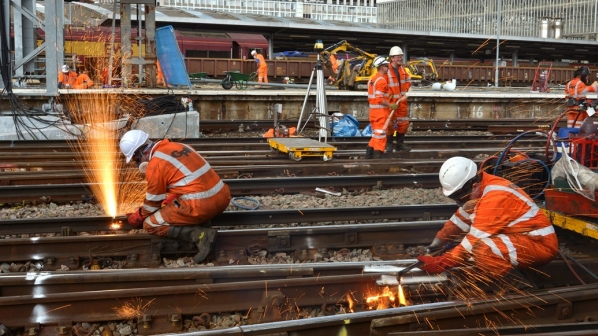NR’s funding is made available from the British and Scottish governments over five-year periods, known as control periods, with CP6 starting on April 1 and running until 2024. Earlier this year NR accepted the Office of Rail and Road’s (ORR) final determination, which set out what should be delivered with the available funding. The publication of the delivery plans gives the detail of how the money will be spent.
The plans are focusing on improving punctuality and reliability through delivering better assets, timetables and information, and working more closely with operators. For the first time, individual regions have been granted individual budgets.
Day-to-day operations will also be further devolved to 13 routes organised into the five NR regions. NR will also devolve central functions including infrastructure projects and elements of system operator, safety technical and engineering, and group digital railways.
NR says it will introduce the structural changes in four phases, with the first - the development of the routes - due to begin in summer 2019.
“In order to effectively deliver our plans for CP6, and to rebuild trust with those that use the railway, we must change the way we work, both within our own organisation and with the rest of the industry,” says NR chief executive, Mr Andrew Haines. “We are embedding a customer service culture at every level and from now on we will work together to put passengers first.”
NR has also set a target of reducing operational delays by 12% in 2019-20 and 28% by the end of CP6. The number of services meeting the public performance measure (PPM), which measures the percentage of trains that run their entire planned journey calling at all scheduled stations and arriving at their terminating station within five minutes (for London & South East and regional services) or 10 minutes (for long distance services), is expected to increase from 85.7% in 2018-19 to 89.8% in 2023-24.
“Passengers and freight users are at the heart of our plans over the next five years,” Haines says. “Performance has been nowhere near good enough and public trust in our industry has declined. This must change. Our role is to deliver a railway that people can rely on, with trains that turn up and arrive at their destination on time, and where passengers have confidence they are in safe hands. This is what we must deliver daily and what we will, and should, be held to account for throughout CP6.
“Our plans for the next five years bring us much closer to operators and local decision makers, they cut red tape and make it easier for others to work with us, and most importantly they put a real focus on the users of the railway.”
“With Britain’s railway one of the most congested in Europe, the last five years has been about delivering mega-projects to boost capacity,” says Rail Delivery Group CEO, Mr Paul Plummer. “Now, it’s time to get back to basics with train operators and Network Rail working even more closely together at a local level to ensure the trains run on time.”

